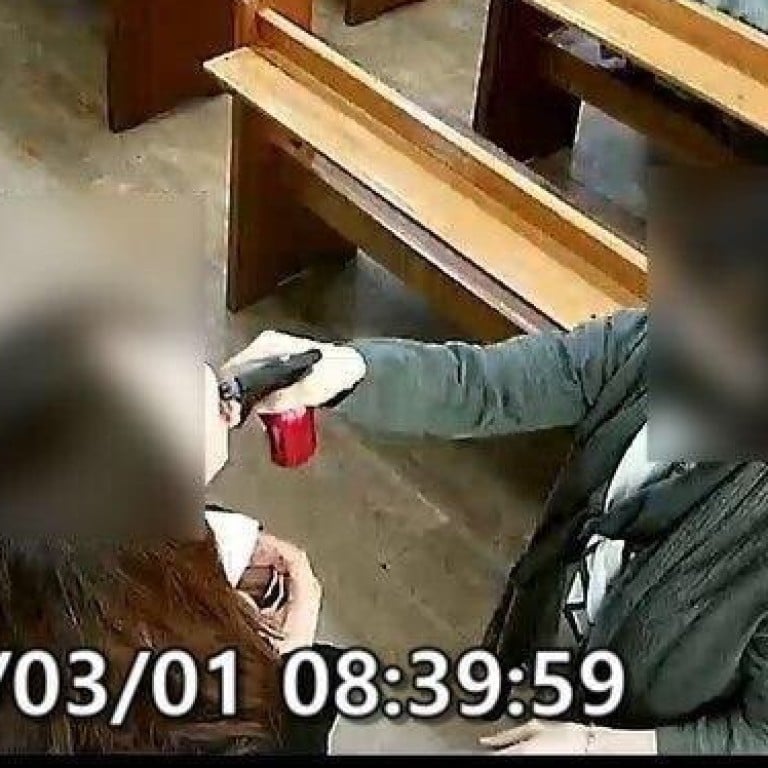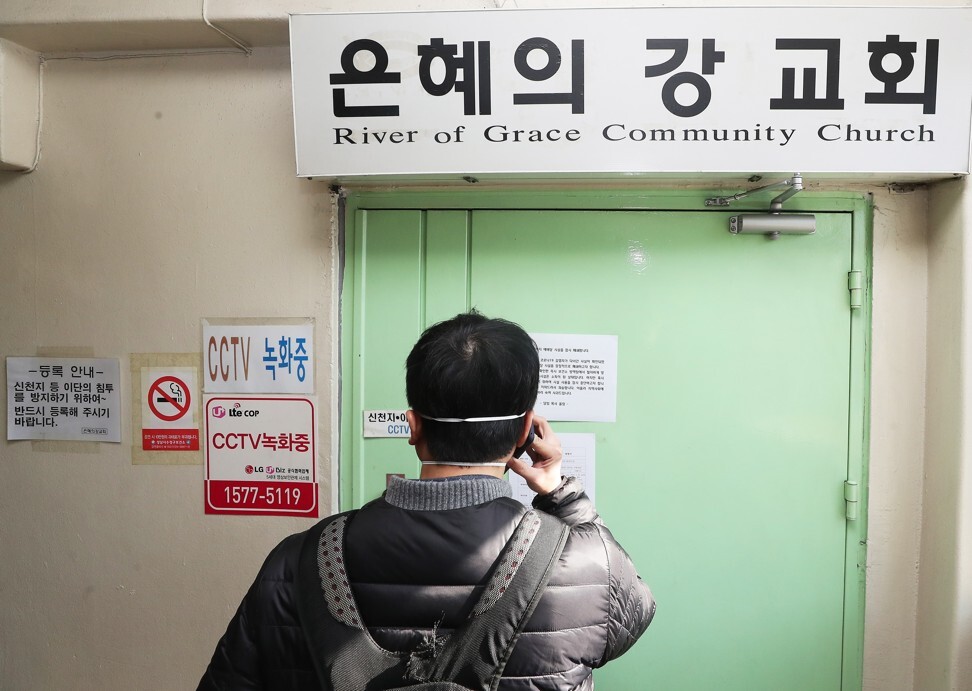
Coronavirus: saltwater spray infects 46 church-goers in South Korea
- The church in Gyeonggi Province sprayed salt water into the mouths of its followers out of a belief it would kill the virus
- The new cases have fuelled the South Korean government’s efforts to clamp down on possible clusters, as cases rise to 8,236
Video images from the River of Grace Community Church in Gyeonggi Province, south of Seoul, show a church official sticking the nozzle of a spray bottle deep into the mouth of one follower after another, during a prayer gathering attended by some 100 followers on March 1 and March 8. Those infected include the pastor and his wife.
“It’s been confirmed that they put the nozzle of the spray bottle inside the mouth of a follower who was later confirmed as a patient, before they did likewise for other followers as well, without disinfecting the sprayer,” said Lee Hee-young, head of Gyeonggi Province’s coronavirus task force.
“This made it inevitable for the virus to spread,” he said. “They did so out of the false belief that salt water kills the virus.”
The church was consequently closed and all its believers who attended the prayer sessions are being tested.
The new cases have fuelled the South Korean government’s vigilance to detect new virus clusters, especially in city areas, even as it has managed to slow the spread of infections.
South Korea confirmed 74 new cases on Monday, bringing its total tally to 8,236. The number of new cases was below 100 for the second consecutive day, and the number of people released from care on Sunday after a full recovery also surpassed the number of new infections.
“It is still too early to relax,” Prime Minister Chung Sye Kyun said at a regular briefing. “The government will concentrate its efforts on preventing cluster infections.”
Chung on Monday said South Korea would expand the quarantine measures applied to those arriving from parts of Europe, such as Italy, to across all of Europe, effective immediately.
The move came as health authorities call for the suspension of mass gatherings, including religious events, as part of a campaign to help people maintain social distancing to fend off the spread of the virus.
Gyeonggi Province has a population of 14 million, and about three in five of its 6,578 churches have complied with a request from the province to suspend gatherings, resorting to online prayers.
South Korea’s virus response is the opposite of China’s – and it works
Authorities have urged churches that continue to hold large gatherings to conduct temperature checks of their followers at the entry gates, and to ensure they wear face masks and sit sparsely.
But many have failed to comply with such requests, resulting in new clusters of infection.
Aside from 46 confirmed cases at the River of Grace Community Church, a total of 25 other cases in the same province were reported from two other churches – 15 at a church in Bucheon City, and 10 at a church in Suwon City.
“We again call for proactive participation by churches in preventing further spread of the virus, including changes to their ways of worshipping,” Lee said.
South Korea reported 74 new cases on Monday, bringing its total number of cases to 8,236 as the virus continued its downward trend in daily new infections.
The sect has apologised for its role in the outbreak and replaced its ceremony to mark the 36th anniversary of foundation with an online worship service on Saturday.
South Korea’s aggressive testing gives clues to true Covid-19 fatality rate
The country was testing people for the virus at the fastest pace in the world, which appears to have allowed early detection of cases, keeping its mortality rate lower than average.
Hindu activists in India drink cow urine to ‘protect’ themselves from coronavirus
Moon’s national security adviser Chung Eui-yong on Sunday asked his US counterpart, Robert O’Brien, in a phone call to deliver the proposal, the statement said, adding that O’Brien said Trump would “actively consider” the idea.
This is not the first time South Korea has suggested the idea. Moon said he would discuss the approach in a call last week with French President Emmanuel Macron.
Additional reporting by Reuters, Bloomberg and Yonhap News


